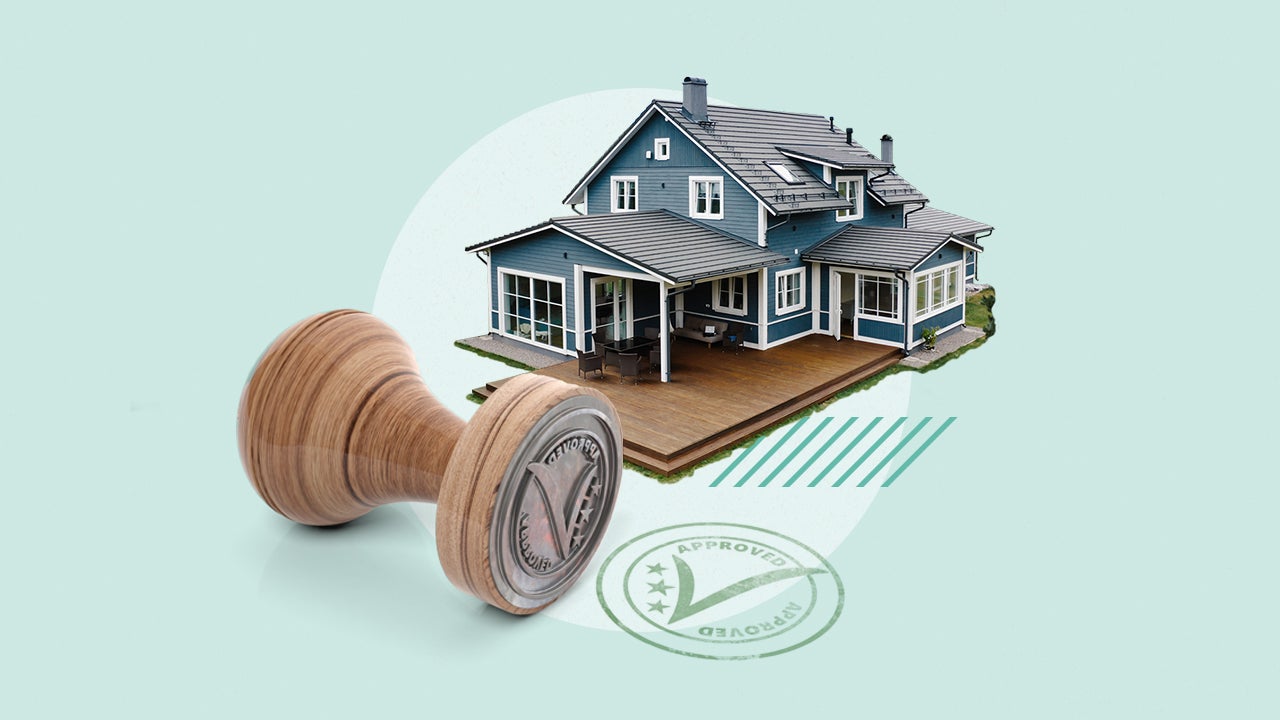Ask Bankrate: Should I refinance or double up on mortgage payments?

Ask Bankrate is a recurring feature where Bankrate’s experts answer your financial questions. Visit this page for more information on how to submit your question. Click on a question here to jump straight to it.
Questions:
- Which is better: Refinancing or doubling mortgage payments?
- Which is the better investment: Stocks or precious metals?
- Considering refinancing into a 15-year loan. Any advice?
- What indicators show where the economy is headed?
- Can you take advantage of low rates if unemployed?
- Is it smart to use a HELOC for short-term needs?
- Puts vs. dollar-cost averaging and lump-sum investing
- In my 40s with little retirement savings. Should I invest now?
- Are qualifications for refinancing investment property tighter?
- Will it hurt my credit to apply with more than one lender?
Q1: Which is better: Refinancing or doubling mortgage payments?
Is it better to refinance or double up on mortgage payments?
— Carol
Answered by Greg McBride, CFA, Bankrate chief financial analyst: “This depends on how far into the loan you are or how close you may be to the end. If you’re in the first half of the loan term, refinancing can cut your interest costs and monthly payments dramatically, freeing up cash that you can devote to other needs like saving for retirement. If you’ve got less than 10 years left on the loan, refinancing may not generate much savings. But before you start doubling up on the payments, make sure your other financial bases are covered — you have adequate emergency savings, you’ve paid off other higher interest rate debt, and you’re maxing out your annual contributions to tax-advantaged retirement savings accounts like 401(k)s and IRAs.”
Q2: Which is the better investment: Stocks or precious metals?
As an investment for the next five years, which would be the preferred investment: Precious metals or stocks?
— Dino
Answered by Stephen Kates, CFP: “For an investment horizon with a defined deadline (five years from today), any single investment or asset class can leave you with unnecessary risk. I wouldn’t suggest putting all of your money into any single asset; instead, use a variety of assets to build a balanced and diversified portfolio to deliver a more consistent return for your five years. What is more important to you over the next five years? Growth or protection? Liquidity or guarantees? Focusing on your personal goals will allow you to zero in on how to maximize your investment potential.
Precious metals like gold and silver tend to move in a manner that is uncorrelated to the broader stock market and therefore can be used as an effective hedge against recessions and stock market shocks, but don’t expect that an investment in gold or silver will be smooth. They are just as prone to shocks as any other asset class and over the long term have not been a dependable source of inflation-adjusted growth.
More traditional investment assets like a diversified and rebalanced portfolio of stocks and bonds will themselves have risks of loss in the short-term but over time show steady returns. Over a rolling five-year period since 1926, the minimum return of a 50-50 stock and bond portfolio was -5.7 percent while the maximum return was 24.2 percent. The portfolio returned a positive five-year return 94 percent of the time. This kind of consistency in returns is one of the reasons stocks and bonds are such standard tools for most investment portfolios.
Other investments like real estate require concentrating a lot of money in one place and are not liquid. Your local real estate market may react very differently than the average national long-term rate of return (annually 3-5 percent) in the next five years and an expected return cannot be easily predicted.”
Q3: Considering refinancing into a 15-year loan. Any advice?
I have a 30-year mortgage at 3.875 percent and was thinking of refinancing into a 15-year loan at 2.875 percent. The monthly payment would go up by $400. Any advice?
— Abdul
Answered by Jeff Ostrowski, senior mortgage reporter: “Refinancing is a smart move as rates plummet. Choosing the term — 30 years or 15 — is really a question of how you feel about using debt as a financial tool.
One school of thought advises against paying down your house and instead directing that money toward investments. In the long run, you’ll have build more wealth by accepting a bit more risk. Traditionalists say you should opt for a 15-year or even 10-year loan and pay it off as quickly as possible.
There’s much to be said for the cozy feeling created by a paid-off house. Which approach is right for you really depends on how you feel about debt and how comfortable you are with the stock market’s inevitable swings.”
Q4: What indicators show where the economy is headed?
What economic indicators do you tend to watch in order to get a sense of the economy and where it is headed?
— Todd Z.
Answered by James Royal, senior reporter on investing and wealth management: “Three good places to watch include housing, the stock market and unemployment.
Housing numbers give you a good sense of whether people are confident to make a large purchase and the bank is extending credit, which is a good signal of money being unleashed into the economy. The stock market will often signal where the economy is headed, with a crash indicating economic trouble ahead. A strong rally may indicate that the economy is turning, but it’s not always a clear signal. It’s important to note that the market usually moves well in advance of the actual improvement. For example, the market bottomed in March 2009, well before the real economy began moving higher. Unemployment figures give you a real measure of what’s happening, not just investor or consumer confidence, and moves here tend to be like turning a ship – slow and gradual.
Watching all three together can provide you some insight into where the economy is headed.”
Q5: Can you take advantage of low rates if unemployed?
How much lower does the rate need to be compared to my current rate in order to be worth refinancing? How can you take advantage of lower mortgage rates if you are unemployed?
— Patrick
Answered by Jeff Ostrowski, senior mortgage reporter: “There’s no hard-and-fast rule about when it makes sense to refinance. But keep in mind that closing costs will add up to thousands of dollars, and you want to be able to offset those costs through lower payments within three years or so.
As for unemployment, it’s almost impossible to refinance if you’re unemployed. Lenders tightened standards in March. Given the uncertain economic outlook, they’re obsessively verifying employment and income.”
Q6: Is it smart to use a HELOC for short-term needs?
Would you recommend borrowing using a HELOC to fill the short-term gap?
— Ashok D.
Answered by Greg McBride, CFA, Bankrate chief financial analyst: “It’s a less-than-perfect option but is often used this way. First the caveats: You can’t borrow your way to prosperity.
Whatever you draw down on the HELOC will need to be repaid with interest, and your home is securing the loan. It is easiest if you already have the HELOC because if you need to apply, get an appraisal, get approved, go to closing, then any mandatory rescission period until you can get your hands on the money, well, that may not meet your definition of ‘short-term gap.’ In lieu of sufficient liquid cash reserves or in the instance where you’re in a bit of a cash flow crunch — waiting on a quarterly commission check for example — then yes, tapping the home equity line can be a suitable option.
Longer term, I’d recommend aiming for the goal of building up sufficient cash reserves so that when unplanned expenses or another cash flow crunch arises, have the option of whether to use your own money (savings) or someone else’s (borrowing).”
Q7: Puts vs. dollar-cost averaging and lump-sum investing
Is selling in-the-money puts (or calls) a better option than dollar-cost averaging or lump-sum investing?
— Rus B.
Answered by Stephen Kates, CFP: “Options trading of any kind should be done so carefully and with a solid understanding of the risks associated with each trade. Based on your question, it sounds like you want to accumulate more stock investments. Out of the options you mention, purchasing in-the-money puts seems like a complicated way to do it for only a small chance of extra gain from the premium. If you are worried about the volatility of the market in the short term, set a schedule to dollar-cost average into the market and put that money to work.
To address the scenario in your question, selling puts will limit your upside if the stock rises above the strike before expiration. If you put the stock, you will likely have a minimal benefit over simply buying the stock today.
Playing out a few scenarios:
- Stock ABC is priced at $45 and you sell a put at a strike price of $50 for $5.50 premium. If the stock stays the same price or moves down in price by expiration, you have a net cost basis of $44.50 and save $50 on what would have been a $4,500 trade if you bought today. This seems like a small gain for the risk.
- Stock ABC is priced at $45 and you sell a put at a strike price of $50 for $5.50 premium. If the stock moves up in price but not above the strike, for example to $48, you will have a gain of $550 – $200 = $350. Again, a gain of only $50 over simply buying today at $45.
- Stock ABC is priced at $45 and you sell a put at a strike price of $50 for $5.50 premium. If the stock jumps in price and above the strike you will have a max gain of $550 and miss out of any future gains of the underlying stock.”
Q8: In my 40s with little retirement savings. Should I invest now?
I’m in my 40s with only $20K saved for retirement. Do you think I should invest even though the market is down? I have savings and no debt. Or is it better to buy my first home?
— Natalia
Answered by Greg McBride, CFA, Bankrate chief financial analyst: “Start by utilizing tax-advantaged retirement savings options like a workplace 401(k) or 403(b), or setting up an IRA on your own if your employer doesn’t offer a retirement plan.
As for whether to invest — yes! You have a couple decades of working years and contributions left (probably) and a couple decades or so of retirement in which you need money to support yourself (hopefully). You have a long time horizon so you can afford to ride out some ups and downs in the markets, and there will be plenty over the course of decades, so maintain your long-term perspective when that happens.
As for buying a home, you needn’t think about this in ‘either/or’ terms. Aim to save 15 percent of your income for retirement. At the point where you are doing that and you can take the plunge into homeownership without compromising your ability to save for the future, then go for it!”
Q9: Are qualifications for refinancing investment property tighter?
Do banks have tighter qualifications on investment properties for refinancing? Should I try a bank or credit union?
— Eddie C.
Answered by Greg McBride, CFA, Bankrate chief financial analyst: “Yes, qualification guidelines for investment properties are indeed more strict, even in normal times but especially now. Expect a larger down payment requirement, higher credit score and more cash reserves than would be the case on a primary residence.
Cast a wide net — bank, credit union, but also a mortgage broker and/or non-bank mortgage lender. You’re more likely to uncover a loan program better suited to your circumstances that way. Good luck!”
Q10: Will it hurt my credit to apply with more than one lender?
Will applying with more than one lender negatively affect my credit score?
— Cherre
Answered by Greg McBride, CFA, Bankrate chief financial analyst: “No, you are not punished for shopping around. The FICO scoring algorithm, for example, ignores all credit inquiries for a mortgage, car loan or student loan in the preceding 30 days all will aggregate any in the 14-45 days preceding that (depending on which version of the model the lender is using) as one inquiry. So by all means, shop around for the best deal!”
Why we ask for feedback Your feedback helps us improve our content and services. It takes less than a minute to complete.
Your responses are anonymous and will only be used for improving our website.
You may also like

How to get preapproved for a mortgage

When to refinance your private student loans

